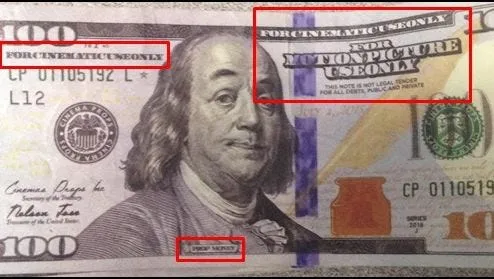
Do you know what the Secret Service's job is?
The Secret Service is best known as the agency responsible for protecting the President. The Secret Service has two primary responsibilities: criminal investigation and presidential security. Secret Service agents are assigned both protection and investigation duties at some time during their service.
These investigations include: counterfeiting of U.S. currency (to include coins); counterfeiting of foreign currency (occurring domestically); identity crimes such as access device fraud, identity theft, false identification fraud, bank fraud and check fraud; telemarketing fraud; telecommunications fraud (cellular and ...
Imagine joining the Secret Service thinking you're going to be a "hero" protecting the president and then you get some desk job following the paper trail of some common thief (exceptional thief). I'm sure it's happened more than once or twice.
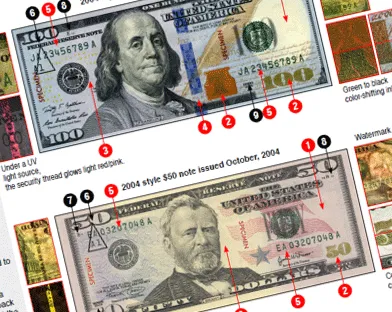
Seriously though, think of all the work-hours and resources spent on trying to make sure everyone within this financial system is following the rules. The overhead cost is massive, and that overhead cost is becoming quickly outdated.
Because not only do you have to worry about bad-acting counterfeiters, but we also have to worry about those who legitimately control the system and the law in their favor so they can exploit these things without even risking getting in trouble. Some people are above the law; they make the law.
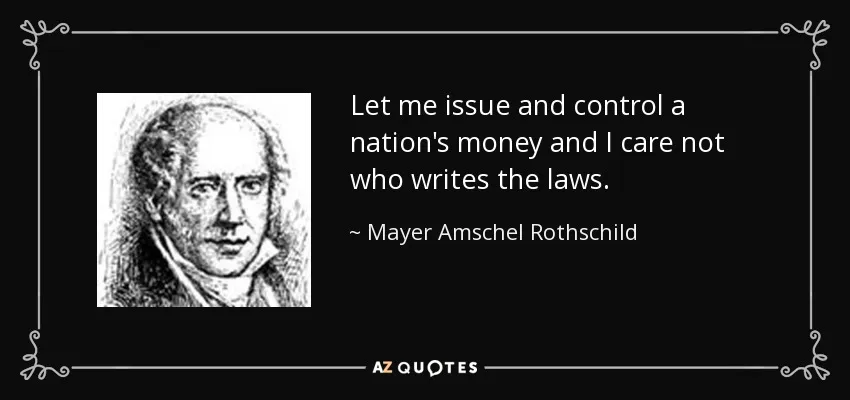

I'm having trouble finding an old cartoon of the character biting a gold coin and bending it with their teeth, but trust me, there are several. I guess Olympians do it as well doing photoshoots? Go figure.
Counterfeiting has been a problem since the beginning of currency. I wrote a post on this recently on silver coins and I actually found out several ways this was done back in the day. The reason silver coins have ridges on the sides is so you can't shave them smooth without giving away you've desecrated the value.
https://en.wikipedia.org/wiki/Methods_of_coin_debasement
- Clipping: Shave off the sides
- Sweating: Shake/bang them around and collect silver flakes
- Plugging: Punch out the center and replace outside plating.
- Use gold plating instead of solid gold.
- Mix metals and claim solid.
And these are just strategies for counterfeiting gold/silver coins. There's so much more to it when trying to parse counterfeiting paper money, and I know hardly anything about the SWIFT banking system and how it has been gamed over time since the 1970's.
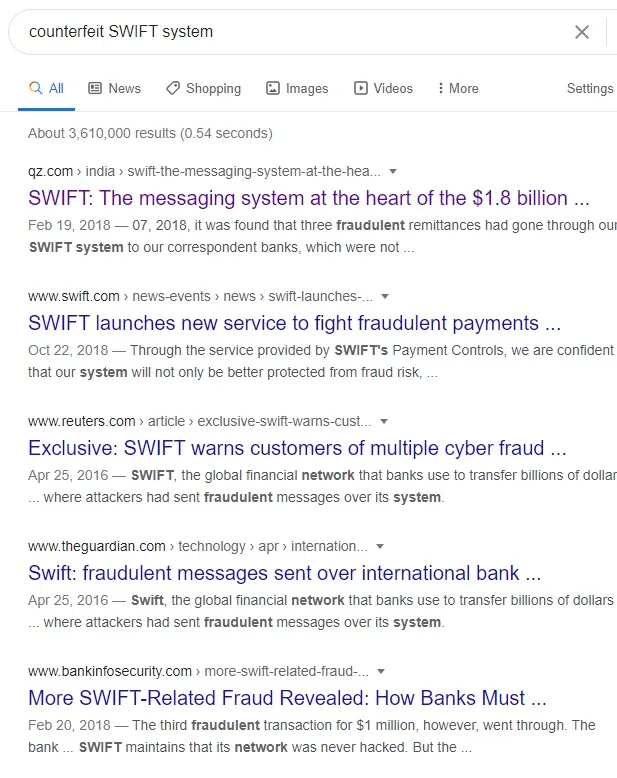
The point is that this problem has been solved, and the legacy system doesn't seem to care. Everyone makes a big deal about Bitcoin and the 21M maximum supply. That is not impressive, in fact that is not impressive at all. What is impressive is the FACT that counterfeiting Bitcoin is financially impossible, and this trait is passed on to pretty much every single crypto network.
Looking locally, take Hive and LEO for example. Two tokens that have no supply cap with relatively high inflation. Even with high inflation and no supply cap, no one in the world can counterfeit these tokens; not even the most powerful organizations on the planet. This is an extremely powerful mechanic that most are simply taking for granted.
The only way to counterfeit Bitcoin is to control network security via a 51% attack using massive hashpower. Any entity that somehow gets this much hashpower would realize it was far more profitable to simply follow the rules rather than destroying the entire network. Why ruin your own investment when you can make a mint securing the network? The system incentivizes its own existence and security financially.
In addition, even if this somehow did happen the network would find a way to pivot and eventually continue operations without having to worry about the double-spend problem. There are many solutions available on this front, including, but not limited to, switching to a new hashing algorithm or simply increasing current hashpower to defeat the attacker.

So why does no one seem to care that we've finally solved the counterfeiting problem? Because even though we've invented a system that is superior and has x1000 to potential of the current system, people are resistant to change. They'd rather things to stay the same even if they have to pay these exorbitant overhead costs because the advantage of controlling the system dwarfs that of allowing the new one to flourish.
Imagine how far along we'd be if the people in charge of the legacy economy finally realized that this was the answer and we should all just embrace it to create abundance for everyone? Not going to happen. Disruption is violent and encounters massive resistance as it bulldozes over the old antiquated systems.
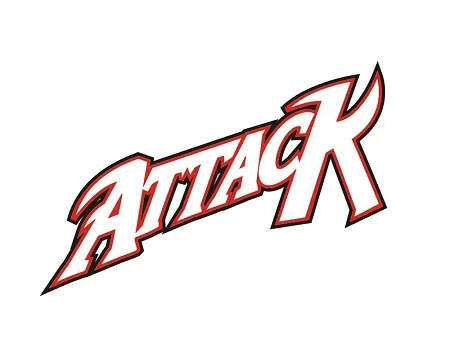
Already we are seeing another barrage of attacks recently against Bitcoin in the form of "terrorist funding" and "energy wasting". It's becoming very clear that the Biden Administration is not going to be friendly when it comes to crypto.
Hell, they are even talking about unrealized capital gains taxes. Which means if a crypto goes x1000 at the end of the year at the snapshot and then crashes 99% you'll owe potentially millions of dollars to the government that does not exist.
Terrorist Funding
This is straight out of the regulation playbook. Want to attack the competition? Make the claim that terrorists, drug dealers, and pedophiles use it. Doesn't even matter what the technology is: terrorists use it therefore it is bad and needs to be shut down. End of story.
Does it matter that USD funds the most terrorism, or that the CIA is the birthmother of nearly all terrorist organizations? Nah, don't worry about little details like that. Bitcoin bad.
Money Laundering
This topic alone deserves its own post (later). Basically you will only ever here about Bitcoin used for money laundering, never tax evasion. Why? Regulators want to make Bitcoin sound more illegitimate than it really is.
Essentially, money laundering is tied to much worse illegal activity (mafia/drug stuff) than tax-evasion. The funny thing? Money laundering and tax evasion are essentially opposites of one another. To launder money one must pay taxes on illegitimate funds in order "launder" them (using a legitimate business front) so that this money can then be spent without attracting the attention of the IRS.
So to say that Bitcoin is used for money laundering is completely ridiculous. Show me how that works. Show me the tax returns. But this is exactly what the regulators claim because when people hear the phrase tax-evasion it elicits a much lesser reaction from the public.
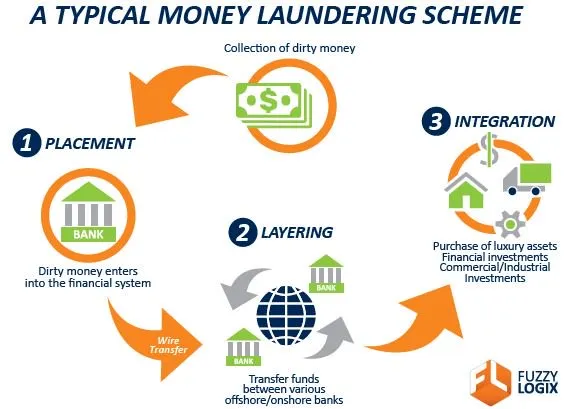
There's also a very valid argument to be made that drug money isn't even dirty. The laws surrounding the War On Drugs are far more offensive and exploitative than drug-dealing itself. This is especially true when we look behind the curtain at how the CIA and other enforcement agencies break the rules whenever they feel like and profit from the War on Drugs.
Small time drug dealers have become millionaires from Bitcoin. Not from the drugs but from the fact that Bitcoin is exponentially doubling in value every year. That doesn't stop the government from confiscating everything and acting like that Bitcoin is then theirs to do whatever they please. These people are hypocrites on every level.
Bitcoin Wastes Energy
This one is really really picking up speed with the whole Green Initiative. Again, this is totally false, and Bitcoin actually leads the charge in green energy and allows powerplants to scale up instantly by allowing excess power that would have been wasted to instead be converted into currency at any location in the world on demand.
Do regulators care about the reality of the situation?
No, they have an agenda. Their agenda is to simply attack the competition so that they and their constituents don't lose control of the iron grip they have on society. We can see that the resistance being presented against crypto is massive and is slowing us down quite a bit, but it doesn't matter. Eventually the tipping point will be reached and all will capitulate to the new superior system.
We've already had way too much institutional adoption for Bitcoin to be banned outright. All further resistance will come from regulating the banks and exchanges in a centralized manner to control the bottlenecks. These bottleneck controls will ultimately fail miserably when crypto users can work and get paid directly in crypto. Hive and LEO are way ahead of the game on this front.
Conclusion
The 21M token supply cap pales in comparison to the fact that Bitcoin and all other cryptocurrencies can not be counterfeit. Many seem to just gloss over this obvious fact like it's not a big deal. It's a huge deal: it's the biggest killer dapp in the entire space. Counterfeiting is no longer a thing. This is huge.
As far as regulation is concerned, expect the resistance posed against crypto to intensify as it becomes a bigger and bigger threat to the establishment. What does this mean? It means at the peak of the next mega-bubble you had better acquire a whole lot of Bitcoin and fiat, because Bitcoin is the most secure and censorship resistant currency in existence, and that isn't changing anytime soon; Perhaps not even in our lifetimes. When crypto threatens the establishment, make sure to own the crypto that is most resilient to regulations. #bitcoin



